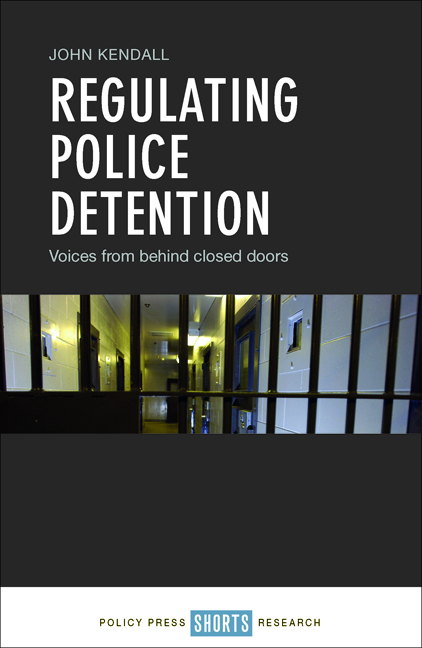Book contents
four - Does custody visiting achieve anything?
Published online by Cambridge University Press: 09 April 2022
Summary
Chapter Three provided an analysis of the findings of this research about the attitudes of custody visitors. This chapter continues with the case study, and employs a similar process to assess the effectiveness of the work of custody visiting. The Oxford Dictionary definition of effectiveness is ‘the degree to which something is successful in producing a desired result’. The chapter considers the effectiveness of custody visiting both in its work of regulation and in fulfilling the purposes that are claimed for it in the official literature. Effectiveness is important for any regulator, simply because an ineffective regulator will fail to achieve its only purpose, that of regulation. However, not all writers on regulation adopt the language of effectiveness. For example, Baldwin and Cave (1999: 9, 81) use the terms ‘efficiency’ and ‘expertise’. Efficiency is seen in terms of whether the discharge of the legislative mandate is value for money and/or whether the regulation leads to efficient results. Those outcomes would be measured in terms of economics, which would present formidable difficulties in the present context. In any case, efficiency is primarily about the use of resources, while effectiveness is about the results that are achieved, which is the issue in this book. Expertise, a quality which contributes towards effectiveness, offers a much more fruitful perspective than efficiency, and is discussed later in this chapter.
Effectiveness
The effectiveness of any activity has to be measured against the impact it makes on its context. The nature of the context of custody visiting, detention in police custody, is described in Chapter One: custody blocks are the police's territory, and the ethos is crime control where the primary concern is to allow the police to build evidence of guilt with minimum interference. Given the nature of that context, the effectiveness of custody visiting as a regulator of police behaviour in custody blocks is assessed in this chapter by reference to the following five criteria:
1. Whether the visits actually took place, the precondition of effectiveness, and the frequency and pattern of visiting.
2. Whether the police behaved differently towards detainees because they knew that custody visitors might arrive at any time, without notice, or because a visit was actually in progress.
3. Whether visits caused police behaviour to be changed, either at the time or subsequently.
- Type
- Chapter
- Information
- Regulating Police DetentionVoices from behind Closed Doors, pp. 89 - 120Publisher: Bristol University PressPrint publication year: 2018

